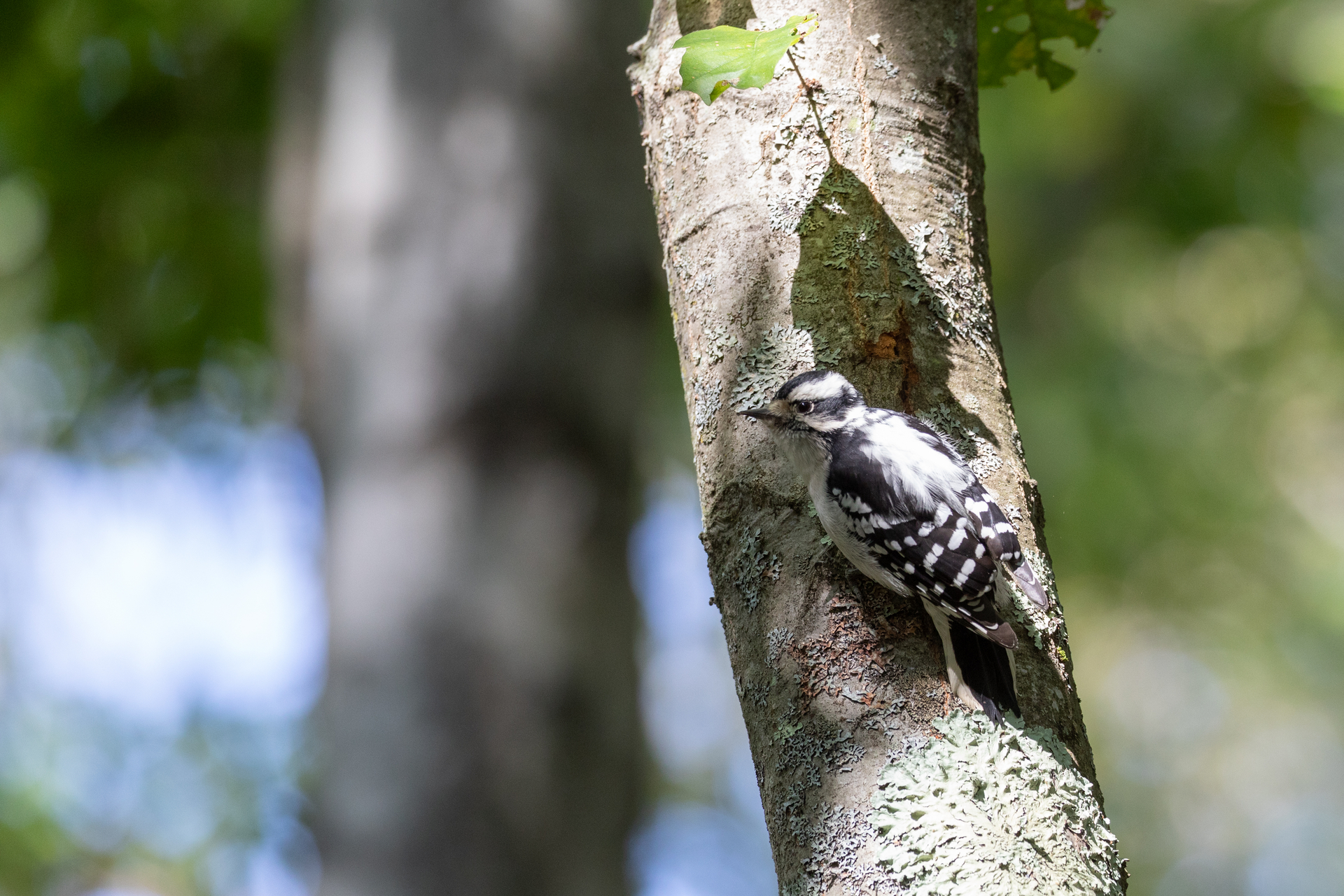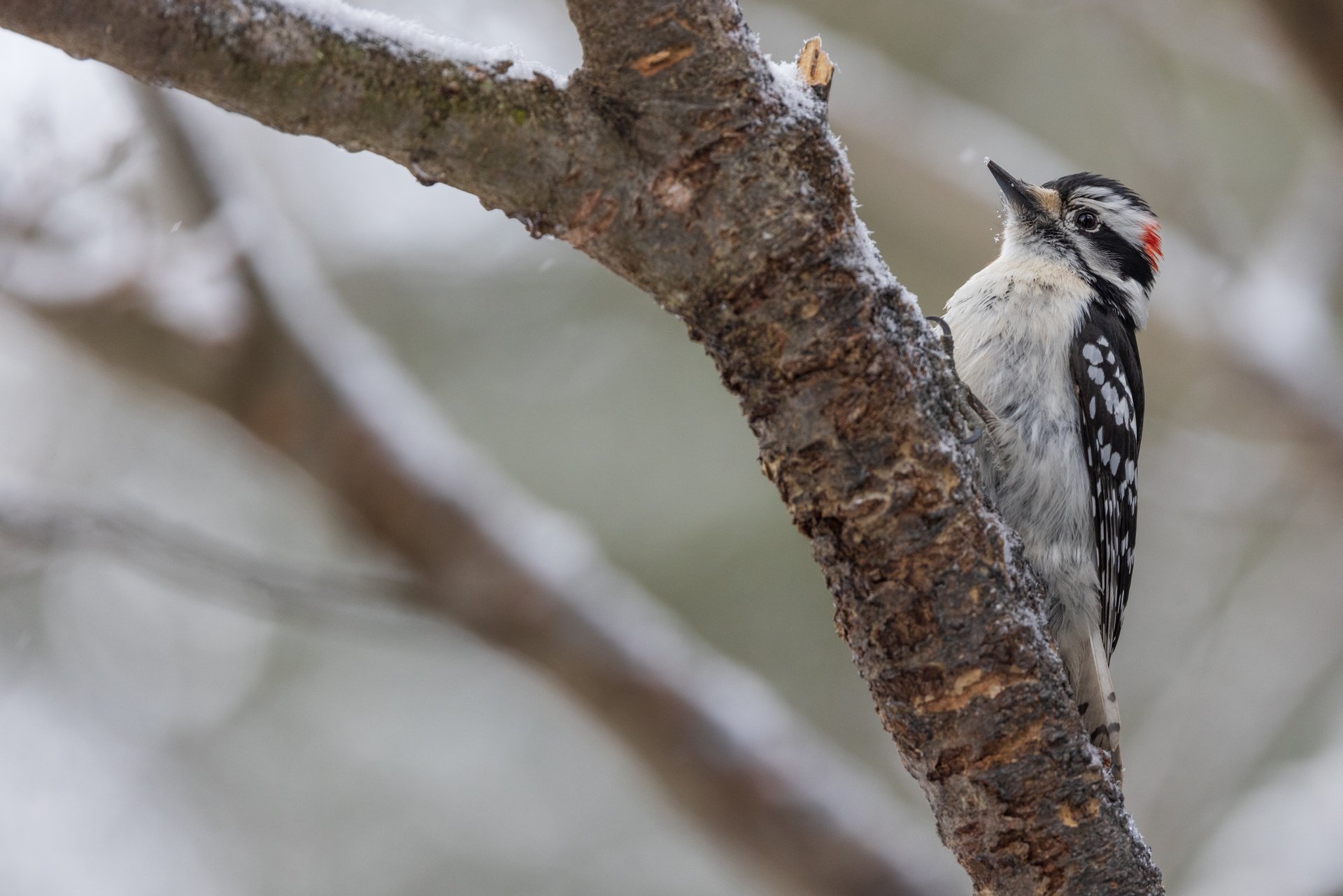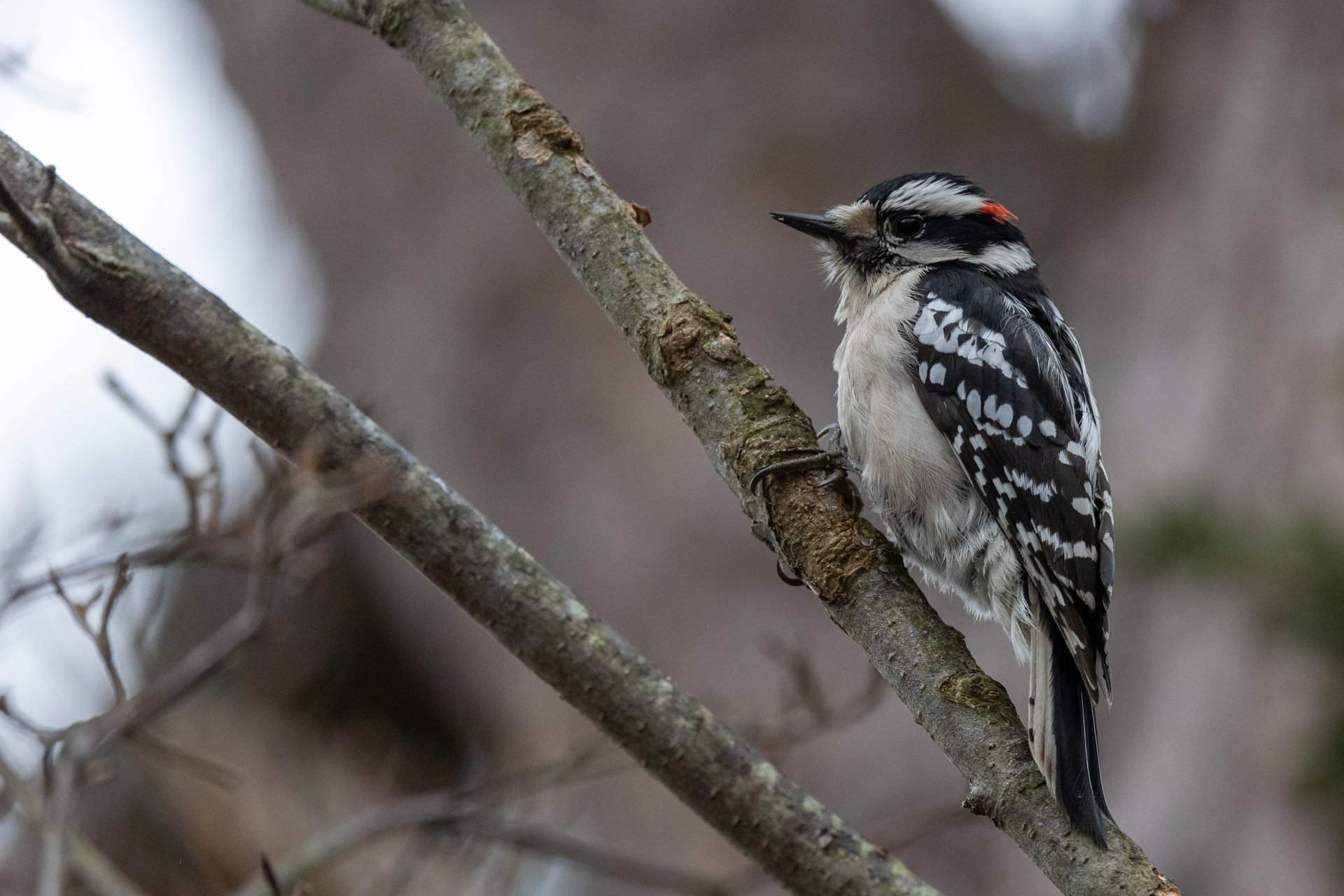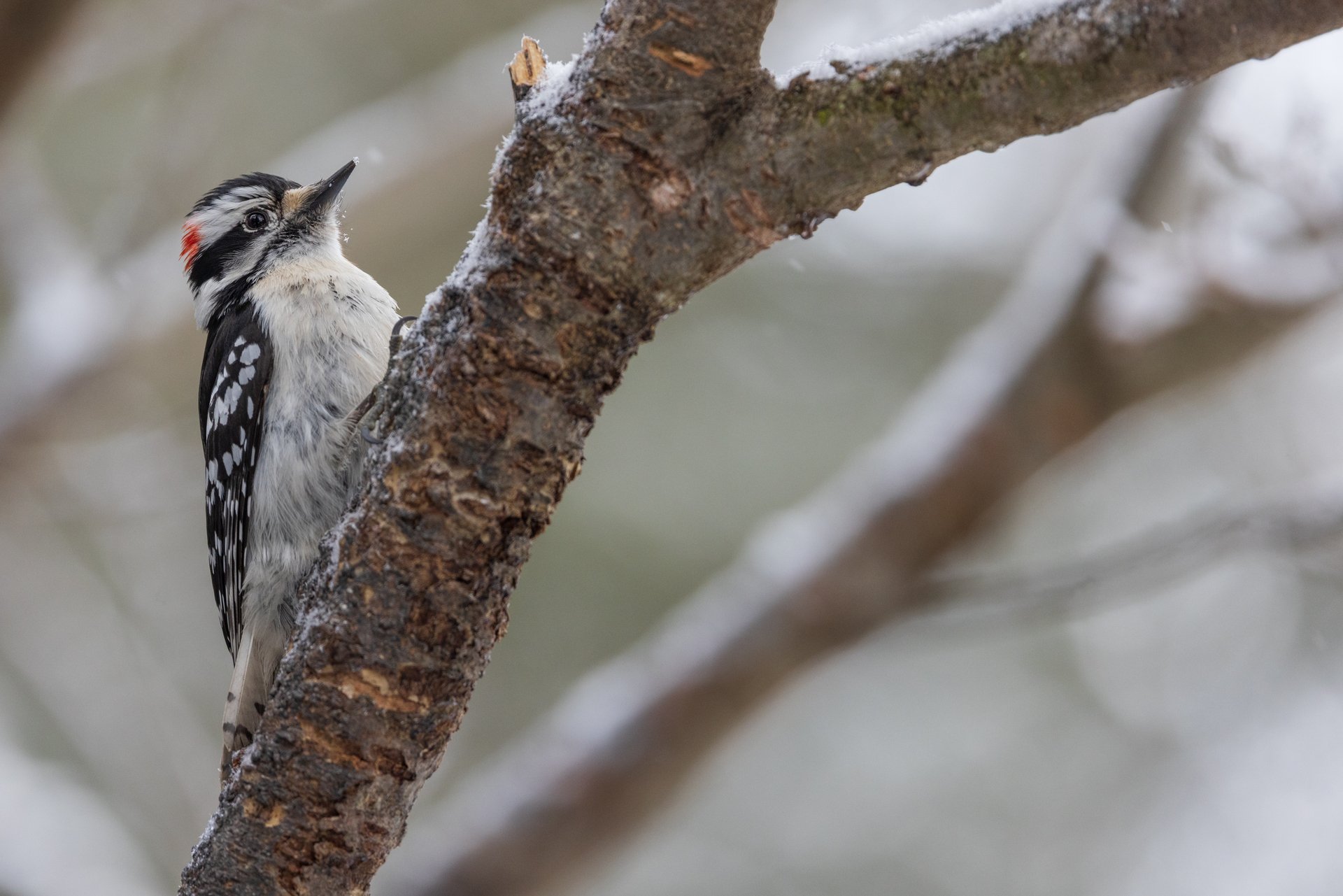Downy Woodpeckers
Our smallest and commonest woodpecker in the Bay State is the Downy Woodpecker. Named for the soft texture of their back feathers, “downies” can be found almost anywhere where there are trees.
Their zebra-striped patterns and industrious behavior make them a pleasure to watch at feeders or in the woods.
How to Identify Downy Woodpeckers
Downy Woodpeckers are small for woodpeckers but medium-sized as backyard birds go (just under 7” long, on average). Their backs have a broad white stripe down the center, and their black wings are marked with white horizontal bars. Their faces are also striped black-and-white, and males show a bright red dot at the backs of their heads.
Downy vs Hairy Woodpeckers
Downy woodpecker bills are small but sharp and stout, like the point of a chisel. Their cousins, the Hairy Woodpeckers, look almost identical, but they are larger, with longer bills that are easily the length of their heads.
Downy Woodpecker Behavior
Downy Woodpeckers spend most of their time clinging to the trunks and branches of trees with their specialized feet. Woodpecker feet are zygodactyls: two toes forward, two behind, rather than the usual three forward, one behind arrangement of other birds.
Downies will pick and peck at tree bark in search of insects, and they will often crawl out to the tips of smaller branches that larger woodpeckers can’t access. They will eagerly visit feeders for both seeds and suet.
In winter, they join large flocks of chickadees and nuthatches to search the landscape for food. In spring and summer, they nest in tree cavities, especially in soft or rotting wood that their small bills can excavate.
Downy woodpeckers are easily the most common and widespread woodpeckers in the Commonwealth, and their willingness to use young forests, mature forests, or tree-lined suburbs has ensured that their numbers continue to stay strong. Winter counts of this resident species are stable or increasing.
Downy Woodpecker Call
How Mass Audubon is Supporting Birds in Massachusetts
Mass Audubon works at our wildlife sanctuaries and beyond to ensure that the nature of Massachusetts continues to thrive. By scientifically monitoring Massachusetts birdlife, Mass Audubon informs important conservation decisions and launches targeted initiatives to help at-risk species. In addition, fostering healthy habitats, supporting native species, and educating people about the importance of nature conservation is critical to our success. Learn more about our work
How You Can Support Birds in Massachusetts
Mass Audubon supports birds like the Downy Woodpecker every day, but we couldn’t do it without the support of our 160,000+ members.
Help support Downy Woodpeckers, and birds like them, by becoming a member today.
Upcoming Bird Programs
See MoreMonthly Bird Walks
-
Magazine Beach Park Nature Center, Cambridge
-
Saturday, April 19
8:00-10:00am
Adults
Birding Workshop: Warblers by Ear
-
Greylock Glen, Adams
-
Saturday, April 19
9:00am-12:00pm
Adults
Birding for Your Mental Health
-
Blue Hills Trailside Museum, Milton
-
Saturday, April 19
10:00-11:30am
Adults
Stay Connected
Don't miss a beat on all the ways you can get outdoors, celebrate nature, and get involved.






